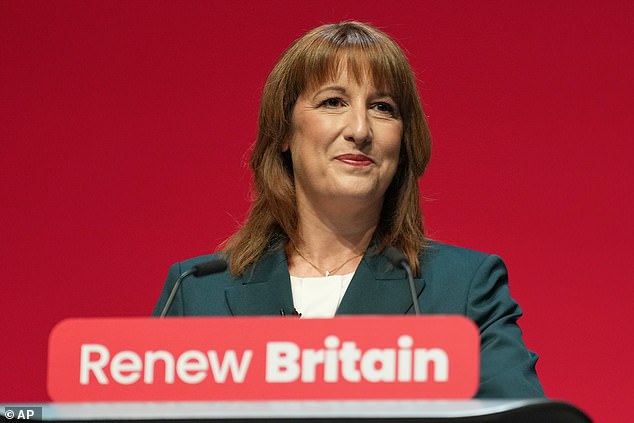Rachel Reeves may only be attending her second annual meeting of the International Monetary Fund (IMF) and G7 leading finance ministers. But the Chancellor already is a veteran.
Political turmoil and elections across the Western world mean Reeves, is astonishingly, the second-longest serving member of the G7 club.
British finance ministers used to come to global meetings with ambitious plans to make the world a better place. Gordon Brown always came to the IMF/World Bank prepared.
He, along with the late, great president of the World Bank James Wolfensohn, was a leading figure in securing debt forgiveness for the globe’s poorest countries.
It is a measure of how the world has changed that these days the poorest nations barely get a mention at the G7.
Most of the discussion here has been on how to best leverage and release some of the $300billion (£223billion) of frozen Russian assets for the benefit of Ukraine.

Political turmoil and elections across the Western world mean Reeves, is astonishingly, the second-longest serving member of the G7 club
The debt build-up in the Western democracies requires them to find creative ways of using other people’s money, even if they are evil Russians. A Labour Chancellor can no longer be a big force in the international development debate.
So much of the resources devoted to aid have been diverted to national defence and paying for the UK asylum policies.
The same is true across the developed world. Covid-19 and the impact of Ukraine on national budgets was a step change in fiscal policies, which changed Western budgetary arithmetic.
Reeves does herself no favours when she seeks to pin all the blame on 14 years of Tory misrule, most notably Liz Truss.
The latter was a terrible prime minister and her unfunded tax changes caused market mayhem.
But it was Labour pressure which put a weak Tory government on the back foot and led to an over-generous subvention for UK energy bills.
There is a recognition by the Chancellor and the Treasury that critical budgetary decisions made last year were a mistake.
Empowering the Office for Budget Responsibility has come back to bite the Government with a vengeance, giving it no flexibility to escape new, gloomier forecasts. National economies are dynamic, responding to global and domestic events.
The target of making UK the fastest-growing economy in the G7 has gone up in a puff of smoke.
This is illustrated as the latest stagnant GDP data – near-flat at 0.1 per cent up in August – demonstrates. It is no accident that the Chancellor finds herself, as was the case last year, bogged down in the weeds of budget policy.
There is a distinct change of tone. A year ago Reeves liked to think she had all the answers. She would underpin confidence in Britain by iron-clad fiscal rules.
The lack of headroom – budget flexibility – has become an anvil. It required the second financial event in March, causing the great welfare cut debacle, and diverted attention away from a focus on ambitious public investment.
Reeves is determined not to make the same mistake again in November. But a bigger fiscal space, creating room to deal with volatility, can only mean higher taxation by a Government which has failed miserably to rein in welfare costs.
Health benefits have developed into a form of universal income (free money) for those who chose not to work. Higher taxes on those with the broadest shoulders are a recipe for further wealth destruction.
Health cheque
The Chancellor wants to offer a small olive branch to Britain’s disenchanted pharmaceutical industry.
She recognises that the rise in the levy which the medicine makers pay to the NHS is too high. And she is prepared to negotiate a more acceptable number.
The horse already has bolted. AstraZeneca has moved to a full New York share quote, in parallel with its London primary listing, and is diverting $50billion (£37.2billion)of investment to the US.
Chief executive Sir Pascal Soriot, the person who heroically saved Astra from Pfizer a decade ago, is now Donald Trump’s best friend.
GSK is aiming to deploy some $30billion (£22.3billion) in the US.
These are vast sums, part of which could have transformed Britain’s home-grown R&D and life sciences. How careless!
DIY INVESTING PLATFORMS
Affiliate links: If you take out a product This is Money may earn a commission. These deals are chosen by our editorial team, as we think they are worth highlighting. This does not affect our editorial independence.
References
- ^ Compare the best investing account for you (www.thisismoney.co.uk)
